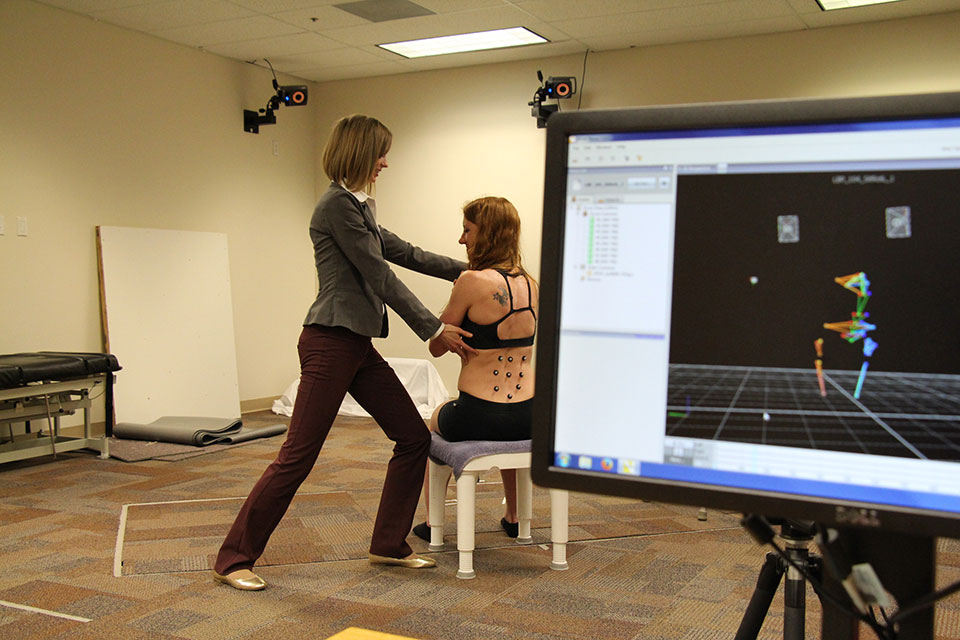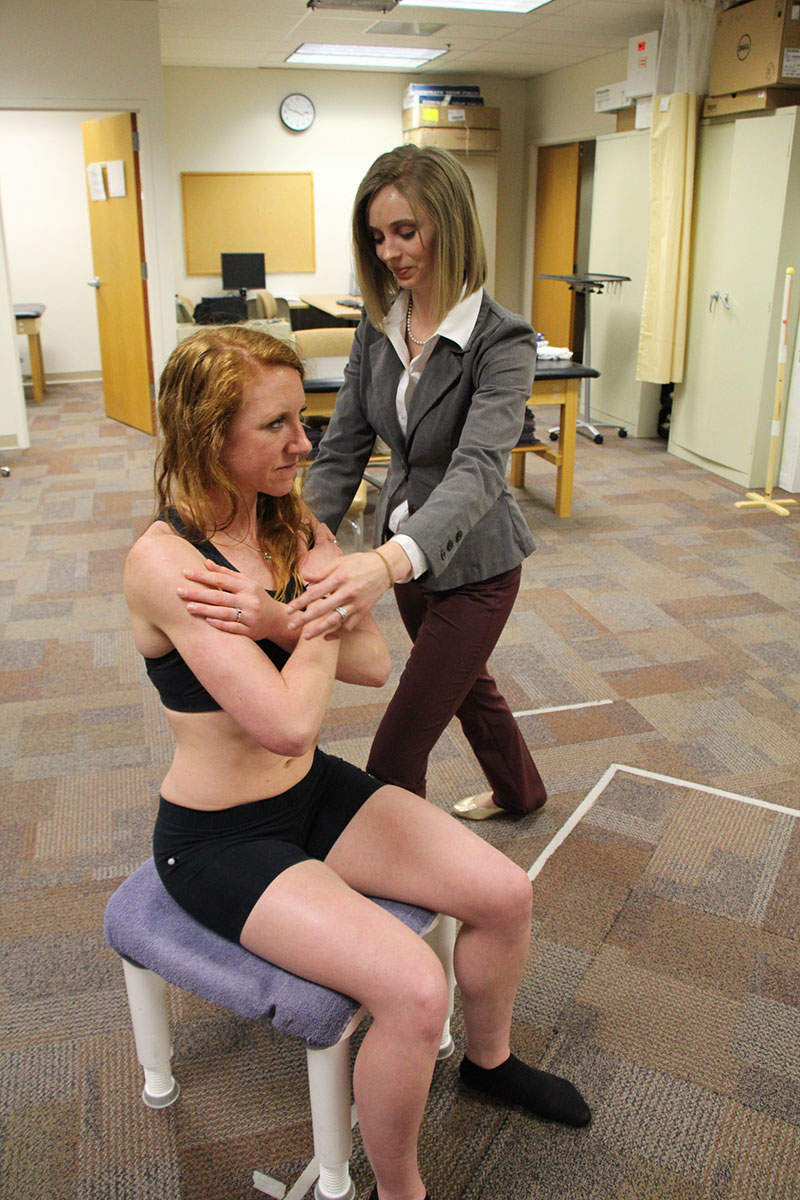
Stephanie Weyrauch (in jacket) demonstrates on clinical research coordinator Sara Bohall how to assess rotation-related impairments in patients. She focused on such impairments and their relation to low back pain for her research as a graduate student in the Program in Physical Therapy. The computer shows kinematic data collected during such assessments.
Photos by E. Holland Durando
Stephanie Weyrauch is a people person.
It’s a key reason she decided to go into physical therapy — that, and it was the family business in North Dakota, where she grew up.
Interested in research, Weyrauch had considered pursuing a PhD in molecular biology. But the pull to work with and treat people was too strong. So she applied to Washington University’s Program in Physical Therapy because it combined all of her loves — science, research, treating people — in one profession.
As a major part of her training, Weyrauch designed a study that looked at people with and without low back pain. Her study explored the association between rotation-related impairments — for example, when a person’s hips and trunk rotate instead of staying square when he or she bends down to pick up a pen — and asymmetric activity, when a person moves to one side like when playing tennis or golf. She found that people with low back pain displayed more rotation-related impairments when moving an arm or leg than those without such pain. The findings suggest a link between such impairments and low back pain.
She presented her findings at the Combined Sections Meeting of the American Physical Therapy Association last year, and a paper on the topic is slated for publication in the journal The Archives of Physical Medicine and Rehabilitation.
“Stephanie embraced the challenges she was faced with, from writing her initial proposal, to analyzing and reanalyzing her data,” said Weyrauch’s mentor, Linda Van Dillen, PhD, a professor of physical therapy and of orthopaedic surgery. “She welcomed constructive criticism and followed through on each suggestion she was given. These are exactly the behaviors a person needs to be able to bring a project to the final step — a publication that will communicate these findings to other researchers and the public.”

A big proponent of networking through social media, Weyrauch used those skills in landing an invitation to a national forum called the Graham Sessions that encourages those in the physical therapy profession to explore, debate and discuss issues in the field, with the aim of driving it forward. Before this year, invitations weren’t extended to students. But Weyrauch had followed the Twitter feed of Graham Sessions creator and moderator Stephen Anderson, CEO of Therapeutic Associates Physical Therapy, a large private chain in the West and Northwest. She later met him at a conference and then visited with him in Seattle while on a clinical rotation.
“I’m a very idealistic person, so I like to talk to a lot of people to get more of a realistic perspective on my ideas,” Weyrauch said.
Anderson then invited Weyrauch to attend the Graham Sessions — and to invite two other students to attend the sessions as well.
“I came away with great ideas and strategies to put those ideas into action,” she said.
“And I think others in the profession appreciate the perspectives of those of us just entering the field.”
Soon, Weyrauch will graduate with a dual degree: a doctorate in physical therapy and a master’s in clinical investigation. After graduation, she will work as an orthopaedic physical therapist in Thief River Falls, Minnesota.
“Her positive attitude, ability to listen and adapt, and her passion will take her a long way in our profession,” Van Dillen said.